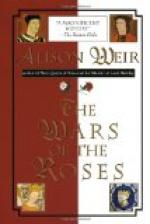“He was loading the gun when I freed myself. I knew that he was going to shoot you. I am very strong, and I saw that he was bleeding and wounded. I sprang upon him and threw him down, and tied the cloak about him, as he had bidden his men bind it about me, By that time you were unhorsed, and I saw that the robber was about to kill you. The gun was loaded, and I took it and shot him. I never killed a man before. I hope it is not wicked; but he would have killed you else. And you had risked your life a dozen times to save me.”
“It was well and bravely done for me and for yourself,” answered the stranger, as he mounted the docile Sultan and assisted the girl to spring up behind him.
Wounded and spent as he was, the excitement of the encounter had not yet subsided, and he was only vaguely conscious of his hurts, whilst he was very much in earnest in his desire to get away from this ill-omened spot before others of the band should return in search of their missing comrades, and take a terrible vengeance upon those who had slain or wounded them.
His companion was no less anxious than he to be gone; and as the good horse picked his way in the dim light through the intricate forest paths pointed out by the girl, who was plainly a native of the neighbourhood, she told him in whispers of the men from whom she had escaped, and of the fate which had so narrowly overtaken her.
“They are the robbers of Black Notley,” she said. “There are two rival bands of robbers here—one at White Notley and one at Black Notley. We call them the Black or the White Robbers, to distinguish between them. The White are not so fierce or so lawless as the Black; but both are a terror to us, for we never know what violence we shall not hear of next.”
“And these Black Robbers would have carried you away with them, by what I gathered from their words, at least from the words of him they looked to as their leader?”
The girl shuddered strongly.
“Once he lived in our village—Much Waltham, as it is called. He was no robber then; but a proper youth enough; and although I was but a little maid, not grown to womanhood, he asked my hand of my father in marriage.”
“And what said your father to his suit?”
“Why, that I was too young to be betrothed as yet; but that if he were a steady youth, as time went on perchance it might be even as he wished. But instead of growing up to the plough or the anvils as other youths of our village do, he must needs go off to see somewhat of the wars; and when he returned it was as a swashbuckler and roisterer, such as my father and mother cannot abide sight of. When he came to Figeon’s to ask me in marriage, he was turned from the door with cold looks and short words; but he would ever be striving to see me alone, and swear that he loved me and would wed me in spite of all. I had liked him when I was but a child, but I grew first to fear and then to hate him; and




